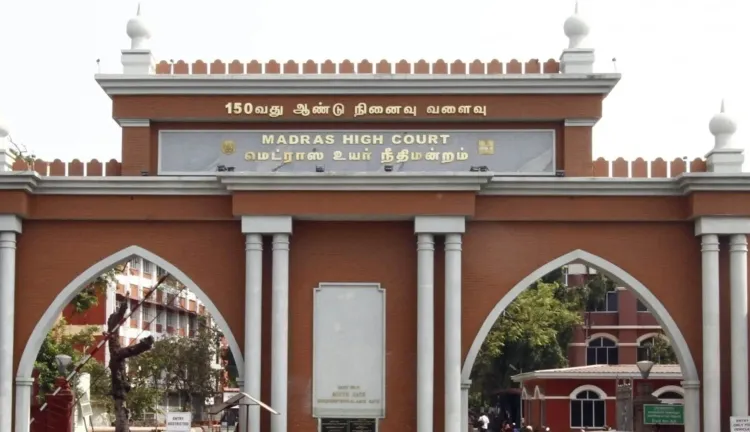Did the Madras HC Just Dismiss a Ban on Movie Reviews?

Synopsis
Key Takeaways
- Madras High Court upholds the right to free speech.
- Online reviews cannot be banned for new films.
- Criticism is a part of film discourse.
- Social media shapes public opinion.
- Independent evaluation of films is essential.
Chennai, June 26 (NationPress) The Madras High Court has recently rejected a writ petition submitted by the Tamil Film Active Producers Association (TFAPA) that sought to impose a ban on online reviews of films for the first three days following their theatrical release. The court argued that such a limitation would infringe upon the fundamental right to freedom of speech and expression.
Justice N. Anand Venkatesh, who delivered the ruling, maintained that film reviews—whether on mainstream platforms or social media such as YouTube, Facebook, Instagram, and X—are an extension of the constitutional right to free speech.
“Producers cannot expect only favorable reviews. Criticism is an integral part of this right,” the judge pointed out.
Labeling the request by the producers as “unsustainable,” the judge stated, “The petitioners must come to terms with the realities of the current landscape. Any attempts to suppress public opinion or reviews are both impractical and legally indefensible.”
He also remarked that the producers seemed to disregard the rising significance of Over-The-Top (OTT) platforms, which have significantly altered viewing preferences.
“OTT platforms are increasingly becoming the preferred choice for many viewers who enjoy new releases from the comfort of their homes. This poses a real challenge to the survival of cinema theaters,” he highlighted.
During the proceedings, Justice Venkatesh candidly reflected on the nature of online interactions, stating, “We are in an age where even judges face online criticism. Just consider the opinions expressed about me on social media. These aspects are beyond control. Nowadays, anyone can be reviewed, and it’s all unregulated.”
Drawing from personal experience, the judge added, “When I encounter a negative review of a film, I make it a point to watch it, as often these critiques are biased. In the social media era, preventing one person from sharing a review will only lead to another person doing so from somewhere else, perhaps Azerbaijan. What can be done about that?”
He further questioned the feasibility of enforcing such a ban, saying, “Even if I were to issue the order requested, how could it be implemented? I don’t believe in issuing unexecutable orders. You are asking this court to perform the impossible. Social media now dominates our world; no individual, organization, or nation is immune to its reach.”
Justice Venkatesh stressed that censorship is not the solution to negative publicity.
“In this age of social media, awareness is the only way forward. Society must learn to evaluate films independently, without being swayed by others’ opinions,” he asserted.
He also acknowledged the inherently subjective nature of film reception.
“Opinions regarding movies will always vary. Just because some individuals post negative reviews doesn’t imply others won’t watch the film and form their own opinions,” he concluded.
Highlighting that many films which initially faced negative feedback ultimately became successful, the judge remarked: “History has shown that such films can rebound. We must not underestimate the audience's discerning capability. Ultimately, awareness and critical thought are our most effective tools.”









